Madrid , 2008
NOT FOR SALE
One hundred children demonstraiting against children trade.
Not for Sale is a work in progress about children who are for sale around the world.
The project started in Bangkok, Thailand, where Framis made the first portraits of children, who are naked except for a necklace that says ‘NOT FOR SALE’.
At first glance the images appear sweet and endearing; the boys are smiling and seem to be happy and healthy. It is only on looking more closely that you notice what Framis is pointing out: the present-day reality of the fragile and dangerous position of many children. From the moment we are born we have a price, but for many children there is a real risk of actually being sold.
Since living in China, Framis has been interested in the idea of portraits as propaganda, like those of Mao Zedong or King Bhumibol Adulyadej of Thailand, who has his portraits all over the city, printed in the same measurements that Alicia Framis used for her photos.
In Not for Sale she used the methods of propaganda portraits, but changed the subject from leaders to something more domestic. Propaganda posters always have this optimistic, cheerful appearance with certain details or attributes conveying the message, showing the subject from below or with the flag or a crowd in the background, showing the power of a leader.
Framis shows the beautiful smiling kids in their idyllic surroundings, with only their small attribute of the necklace revealing their possible fate.
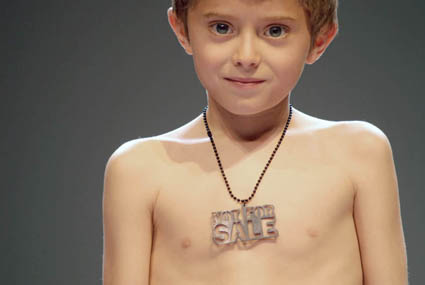
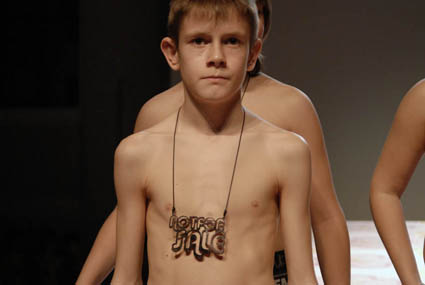
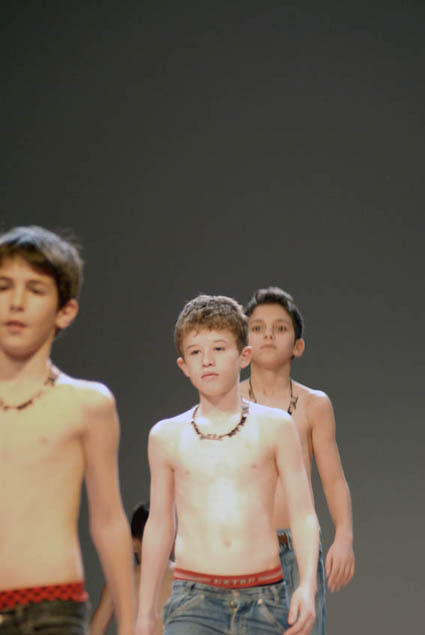
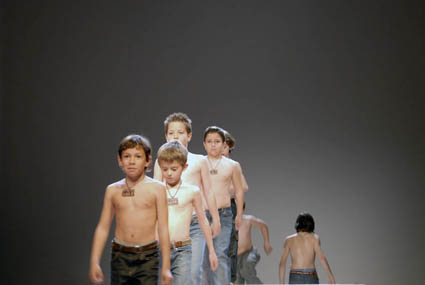
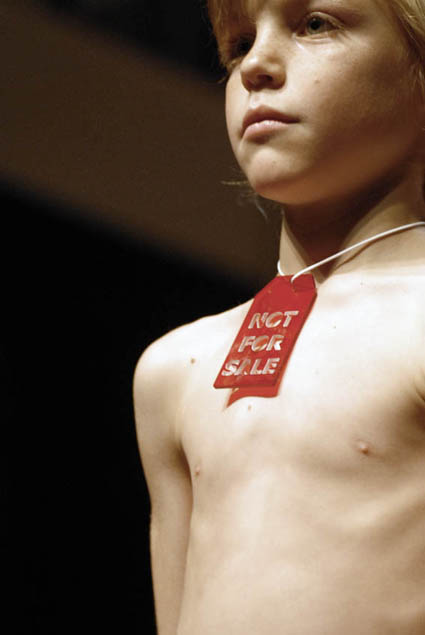
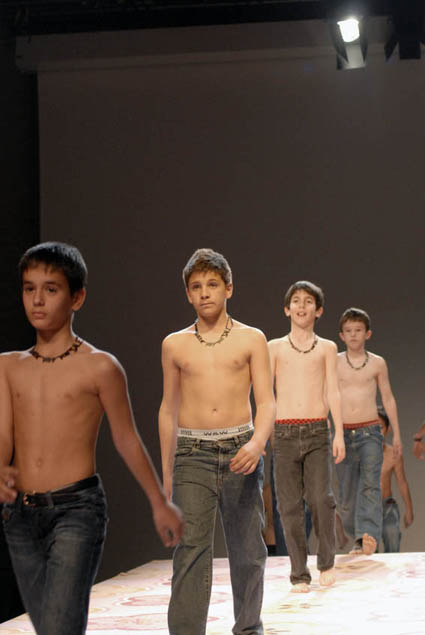
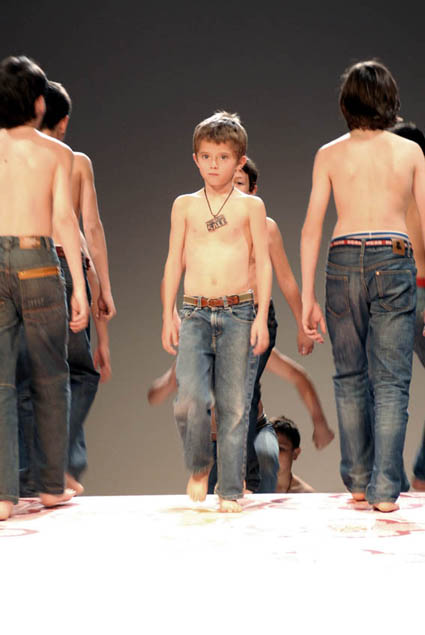
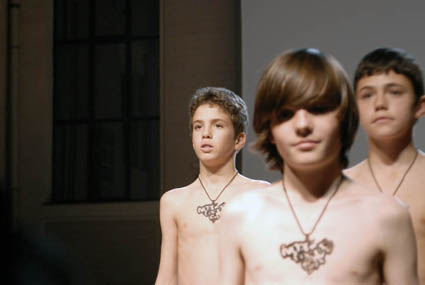
Not for Sale is a work in progress about children who are for sale around the world.
The project started in Bangkok, Thailand, where Framis made the first portraits of children, who are naked except for a necklace that says ‘NOT FOR SALE’.
At first glance the images appear sweet and endearing; the boys are smiling and seem to be happy and healthy. It is only on looking more closely that you notice what Framis is pointing out: the present-day reality of the fragile and dangerous position of many children. From the moment we are born we have a price, but for many children there is a real risk of actually being sold.
Since living in China, Framis has been interested in the idea of portraits as propaganda, like those of Mao Zedong or King Bhumibol Adulyadej of Thailand, who has his portraits all over the city, printed in the same measurements that Alicia Framis used for her photos.
In Not for Sale she used the methods of propaganda portraits, but changed the subject from leaders to something more domestic. Propaganda posters always have this optimistic, cheerful appearance with certain details or attributes conveying the message, showing the subject from below or with the flag or a crowd in the background, showing the power of a leader.
Framis shows the beautiful smiling kids in their idyllic surroundings, with only their small attribute of the necklace revealing their possible fate.